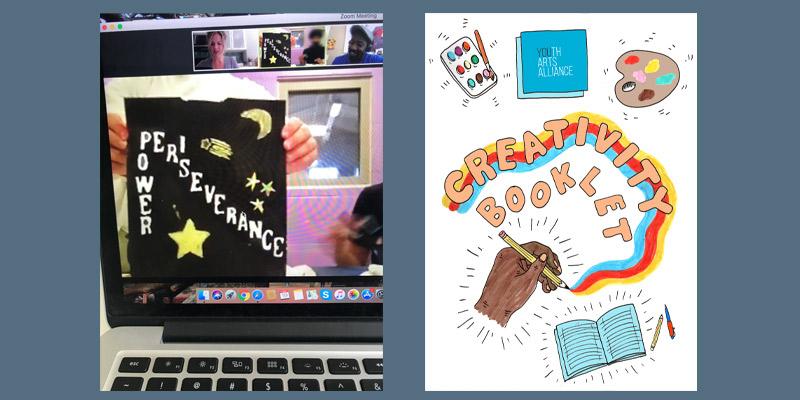When Youth Arts Alliance founder Heather Martin began working in prison creative arts, the adults she met often said they wished they had access to arts programming as kids. Many told her, “I used to love making art, and I lost touch with that because I didn’t have opportunities to continue,” she recalls. Now in its eighth year, Youth Arts Alliance works to create those opportunities. The nonprofit organization provides “healing-centered arts programming” for youth in the juvenile justice system and community of five counties in Michigan. Locally, YAA serves young people who are incarcerated in the Washtenaw County Youth Center, on probation with the Washtenaw Juvenile Trial Court, and youth who are connected to Community Mental Health resources and Ypsilanti’s Parkridge Community Center. Its workshops, led by rigorously-trained teaching artists from a wide variety of backgrounds, use art to support mental health, explore identity, prompt creative expression and heal symptoms of trauma.
YAA’s programming (which has continued without pause through the pandemic) offers eleven to fourteen live Zoom workshops each week to youth who are currently and formerly incarcerated, as well as youth who are not system-involved. For participants at home, art-making is increasingly a family affair. “Siblings are joining in the practice, parents are coming into the screen supporting their young artists. We’re feeling support and engagement in new spaces,” says Martin.
YAA’s focus has always been on “high-quality healing arts experiences,” Martin says. This summer, renowned Detroit muralist Sydney James taught technical drawing and self portraiture. Artists from around the country have participated in a recent “Call + Response” project, which invited professional artists to create art in response to the work of YAA youth artists. These responses came in the form of watercolor paintings, poetry, letterpress print posters, and more. “[Call + Response] provided a way for us to connect young people to people who are in their creative careers as artists, almost in a penpal-like relationship,” says Operating Officer Lucy Cahill.
To supplement virtual programming, YAA provides creativity curriculum booklets and art supplies (paintbrushes, oil pastels, markers, and more) to young artists, whether they’re at home, incarcerated, or in residential treatment facilities. “In the times outside of Zoom workshops, it’s important to have tactile expressive experiences,” says Martin. Access to art supplies gives participants more freedom in their artistic practice, as do the over seventy video prompts created by the organization’s art educators this summer. The prompts range in subject from mindfulness to horticulture to shadow puppetry, and give young artists the freedom and space to experiment that a live Zoom call can’t always provide.
Recent fundraising efforts have been inventive, too: after a successful virtual yoga class in September, YAA is gearing up for an online Italian cooking class in November. Proceeds will help them further their mission of investing in communities by serving, listening to, and taking direction from young people.
“We desperately miss making art in person,” says Martin, “but the art is still happening. We’re still creating together.”
Cahill agrees. “If one thing is true of artists, it’s that we always find a way.”
